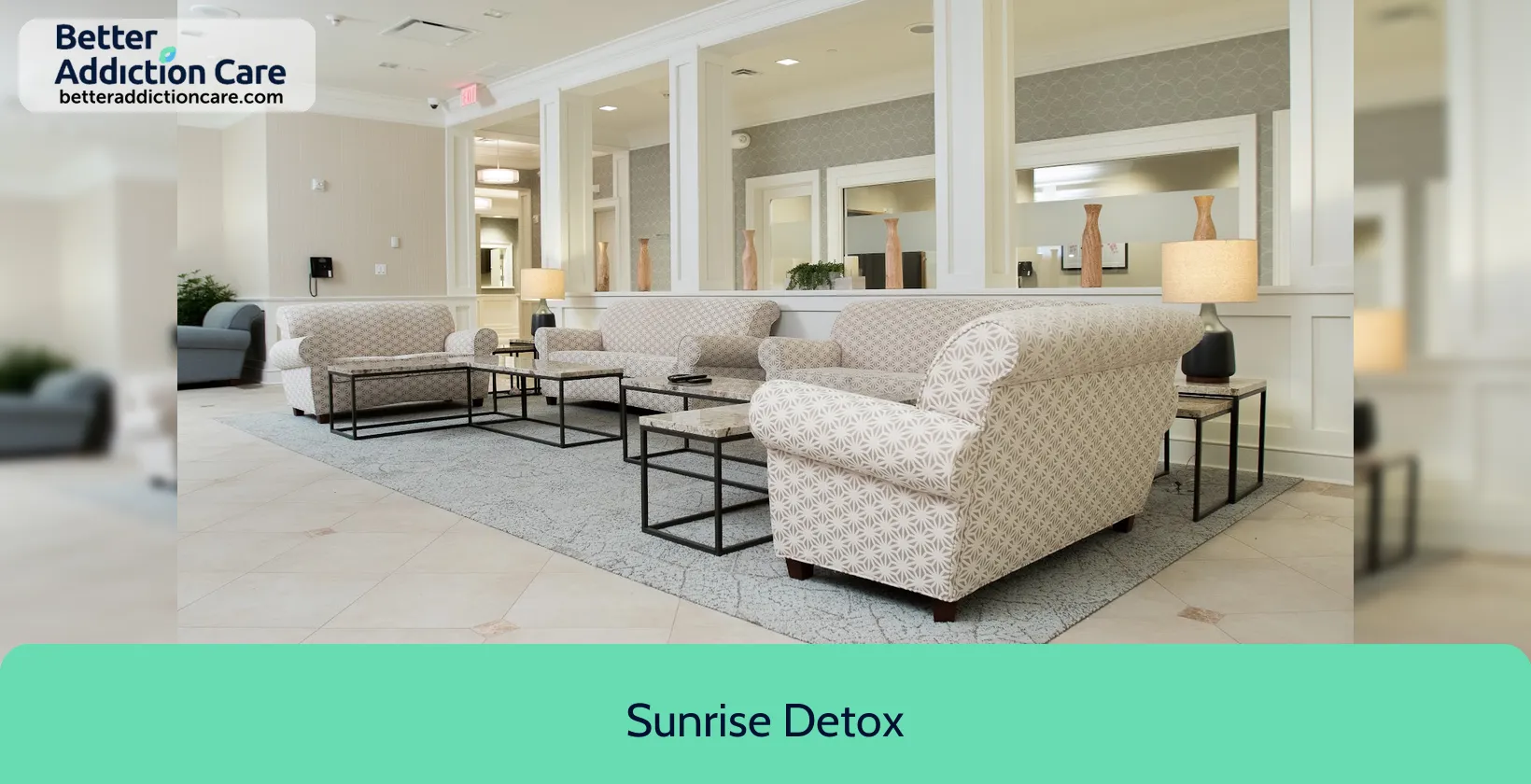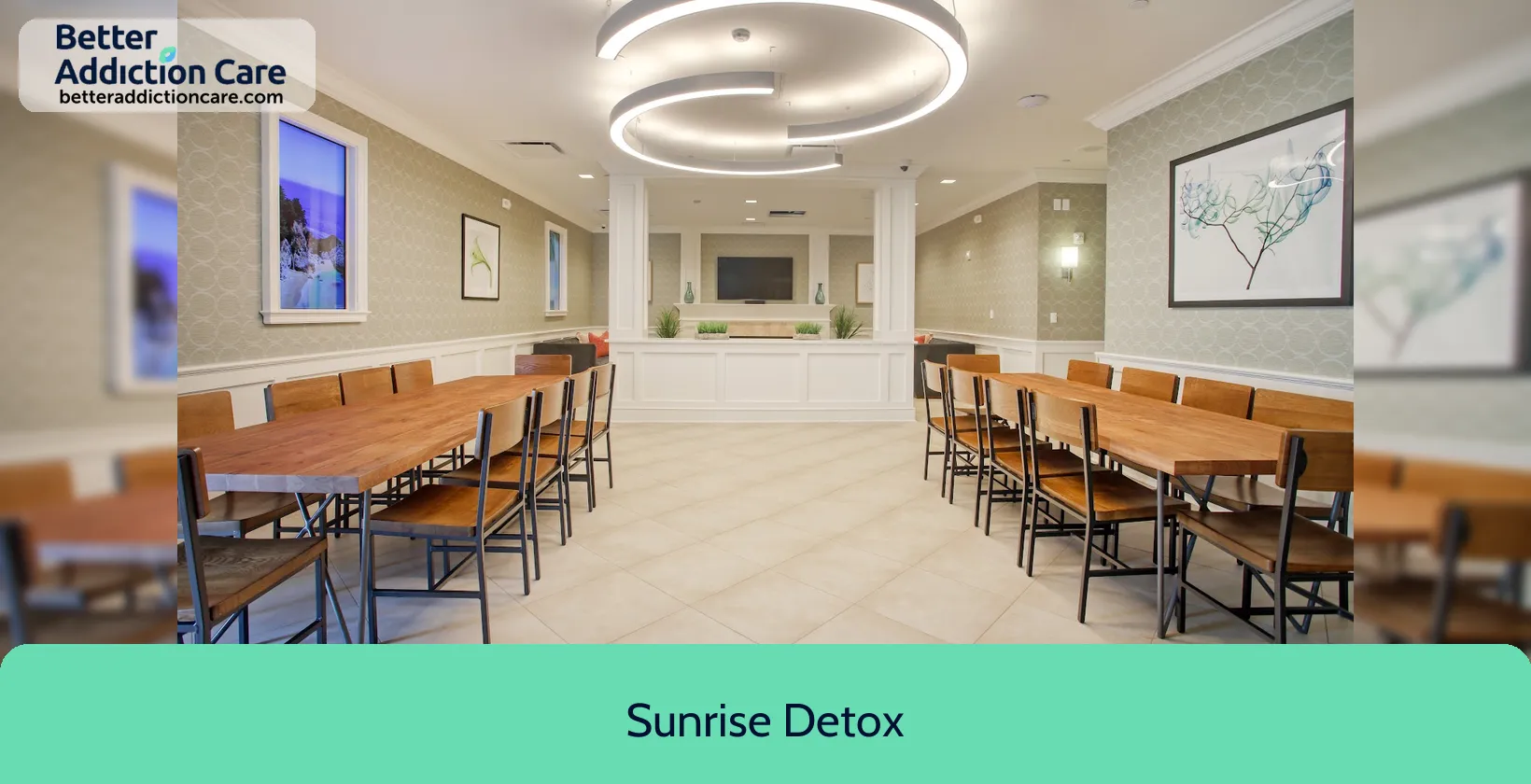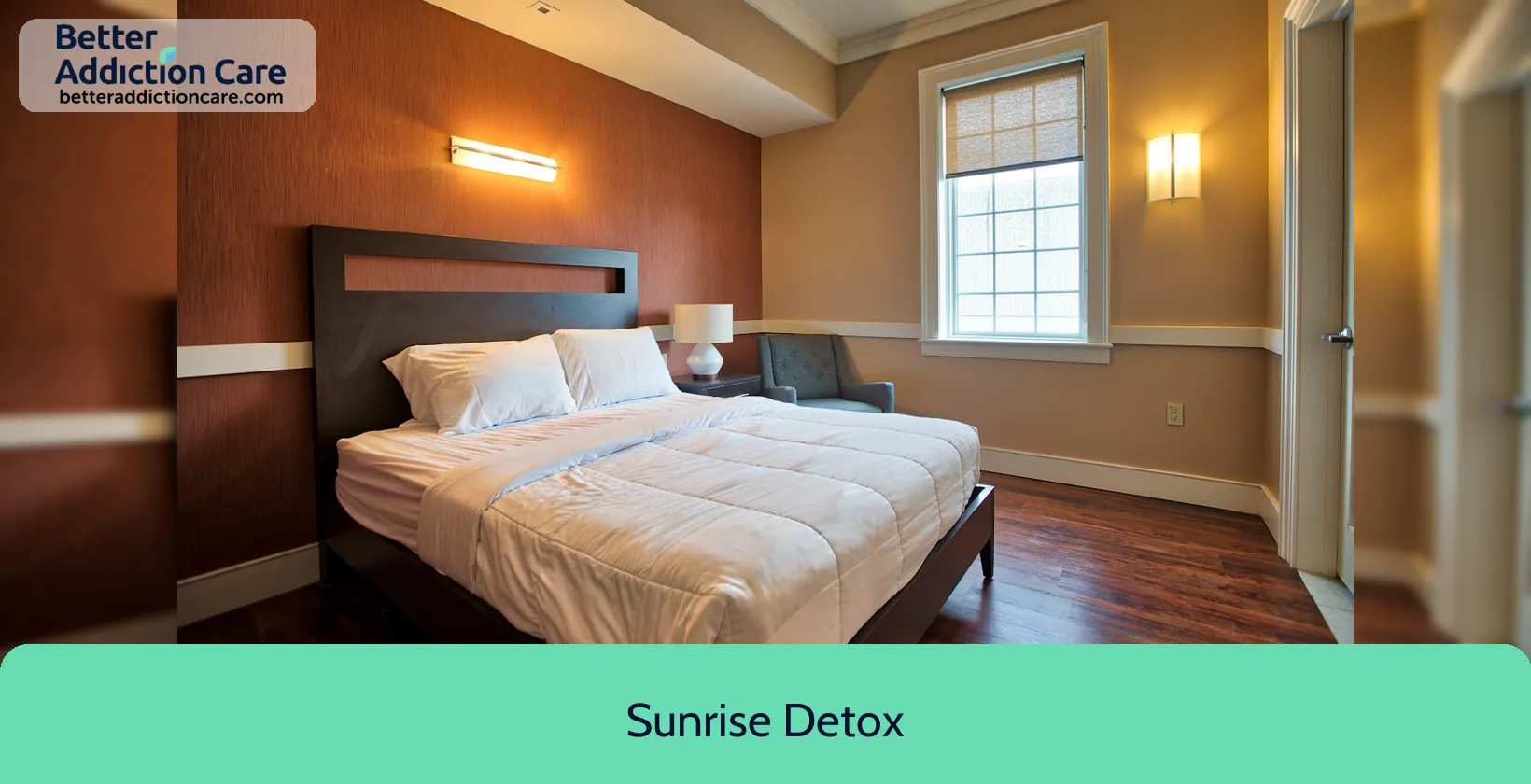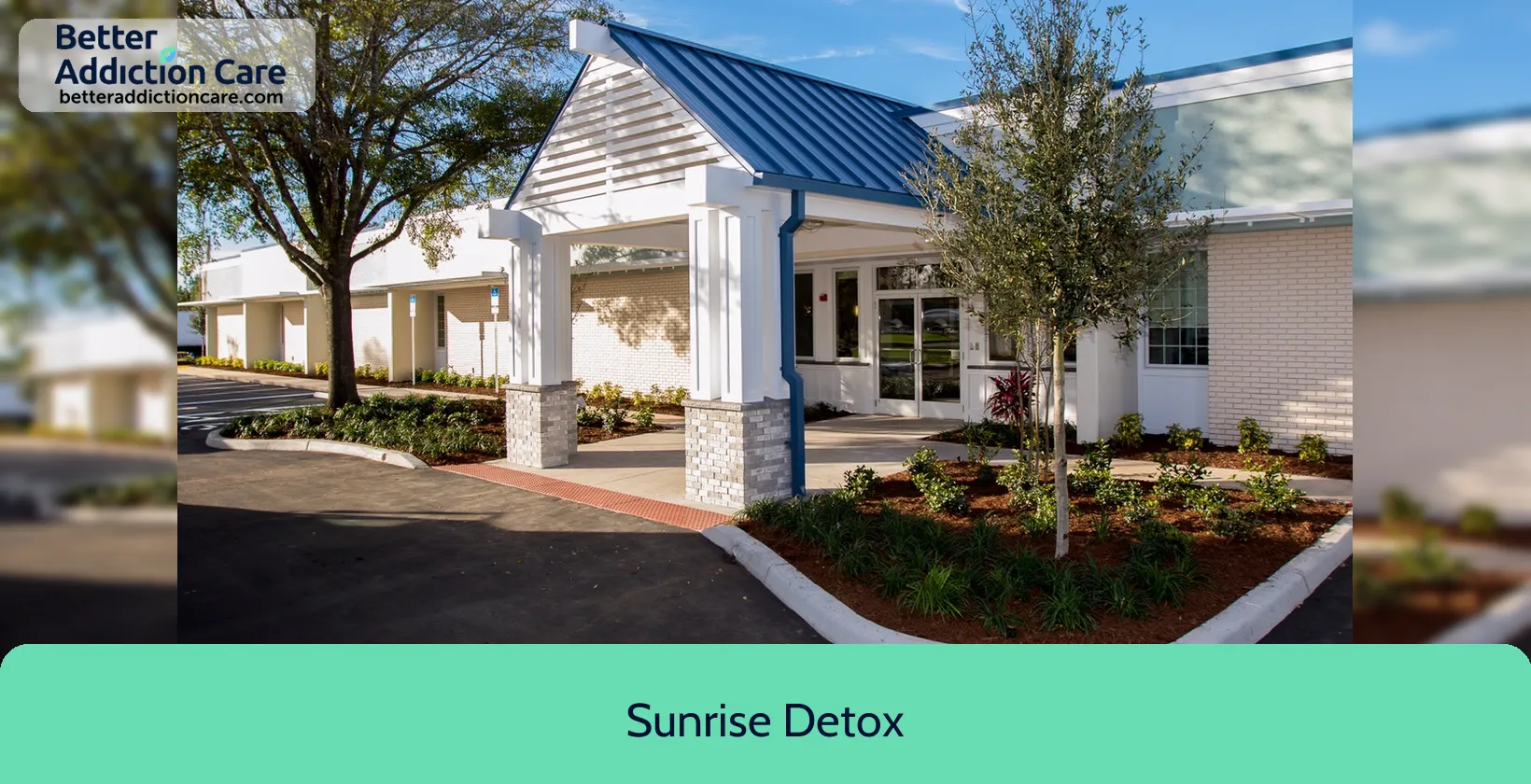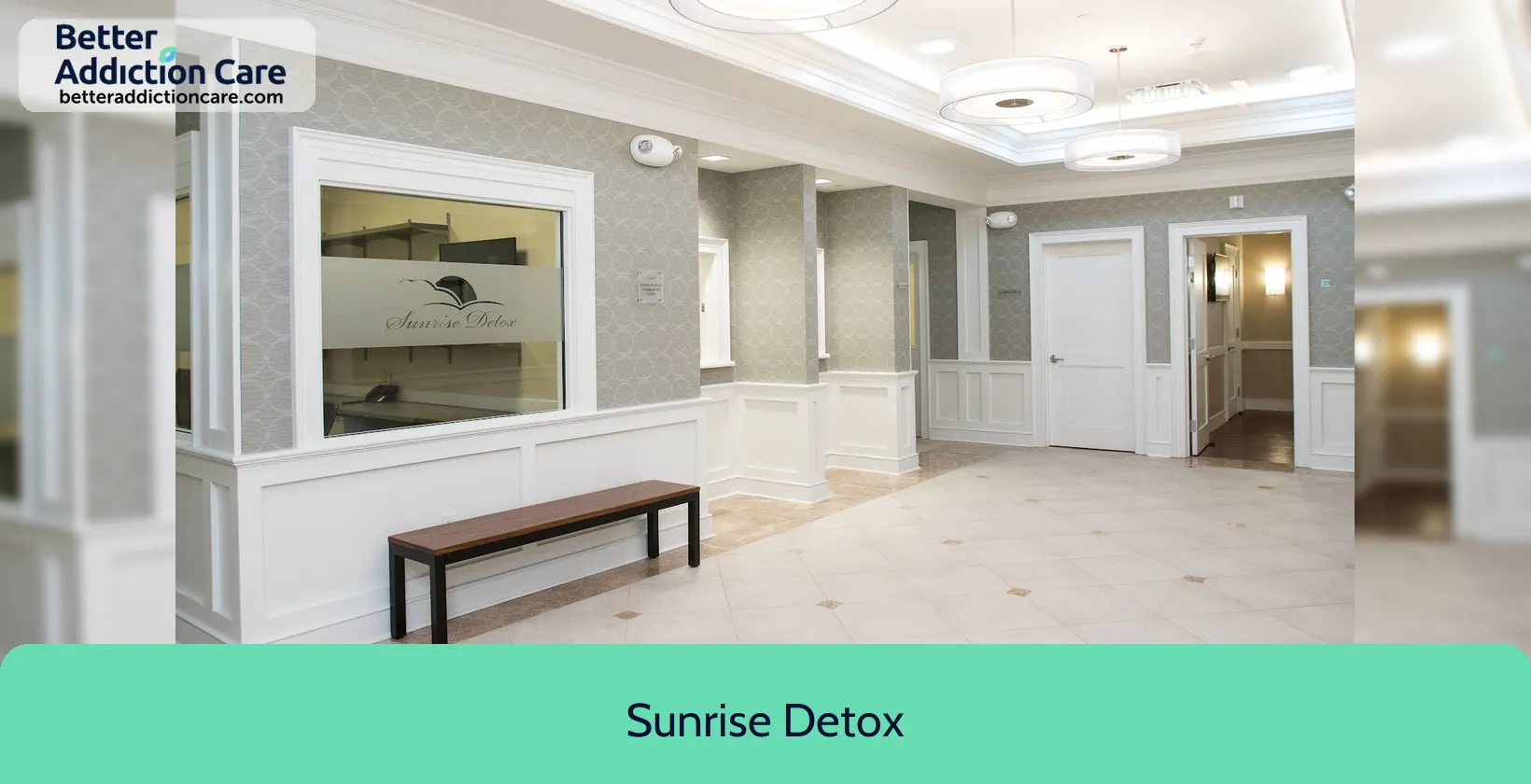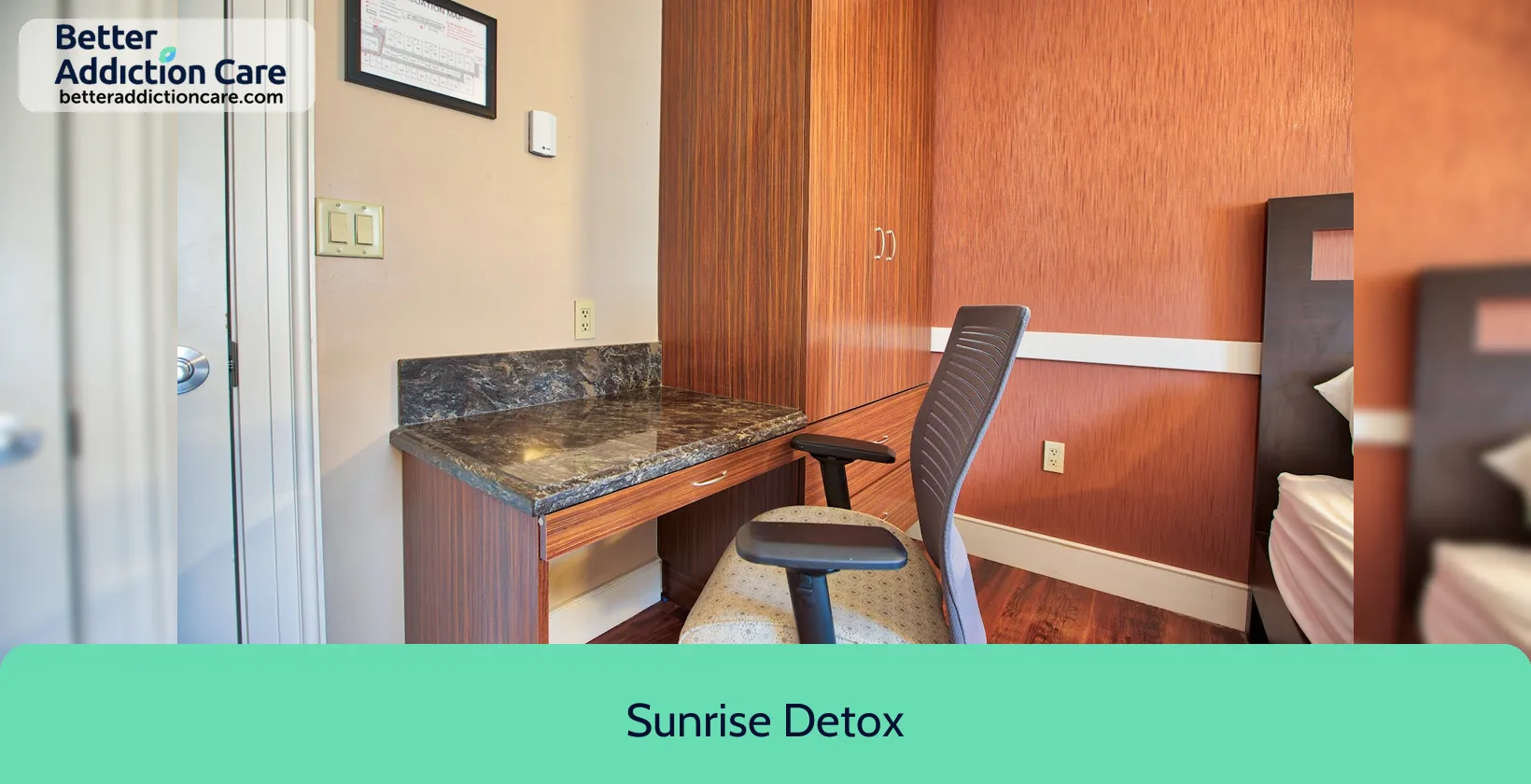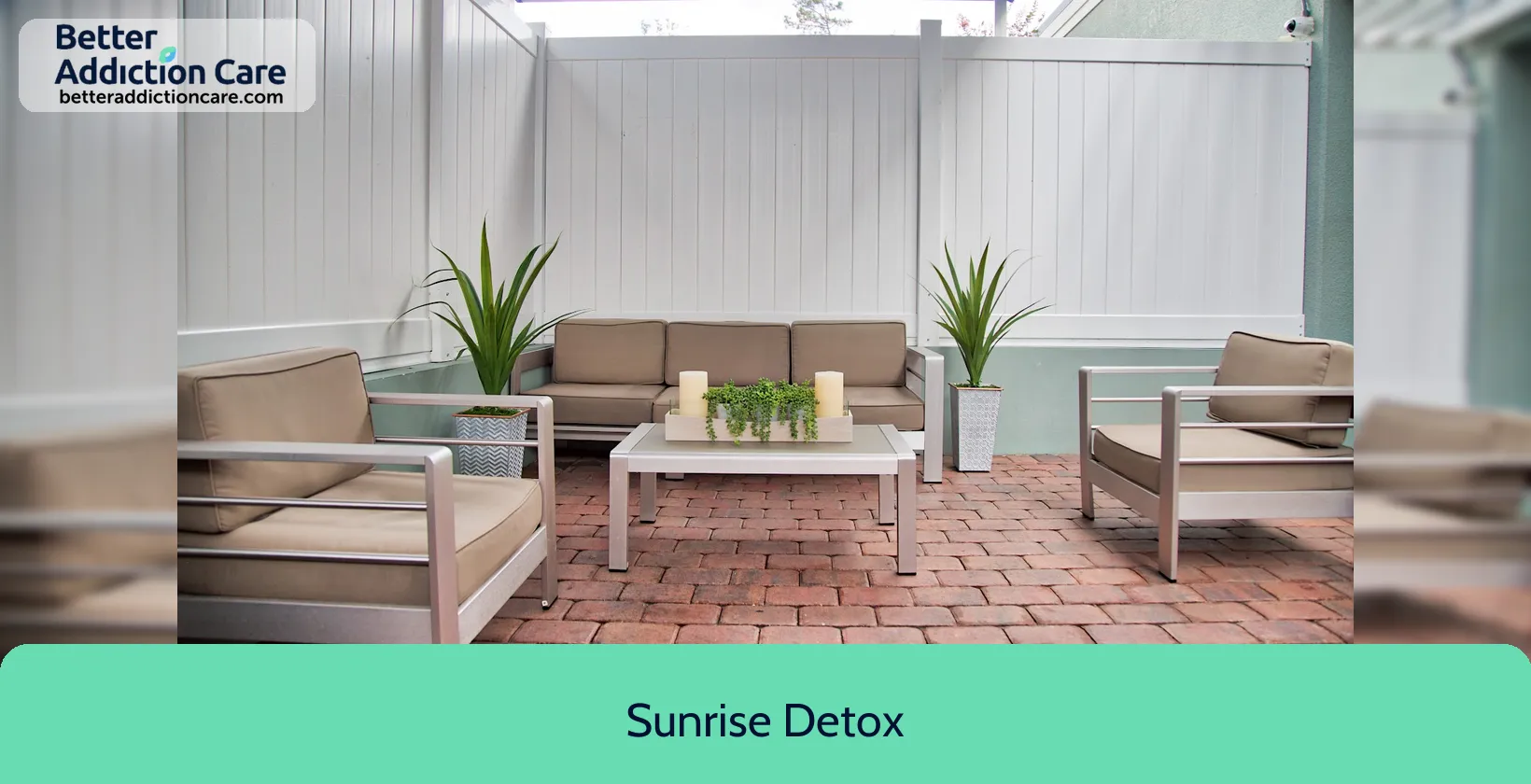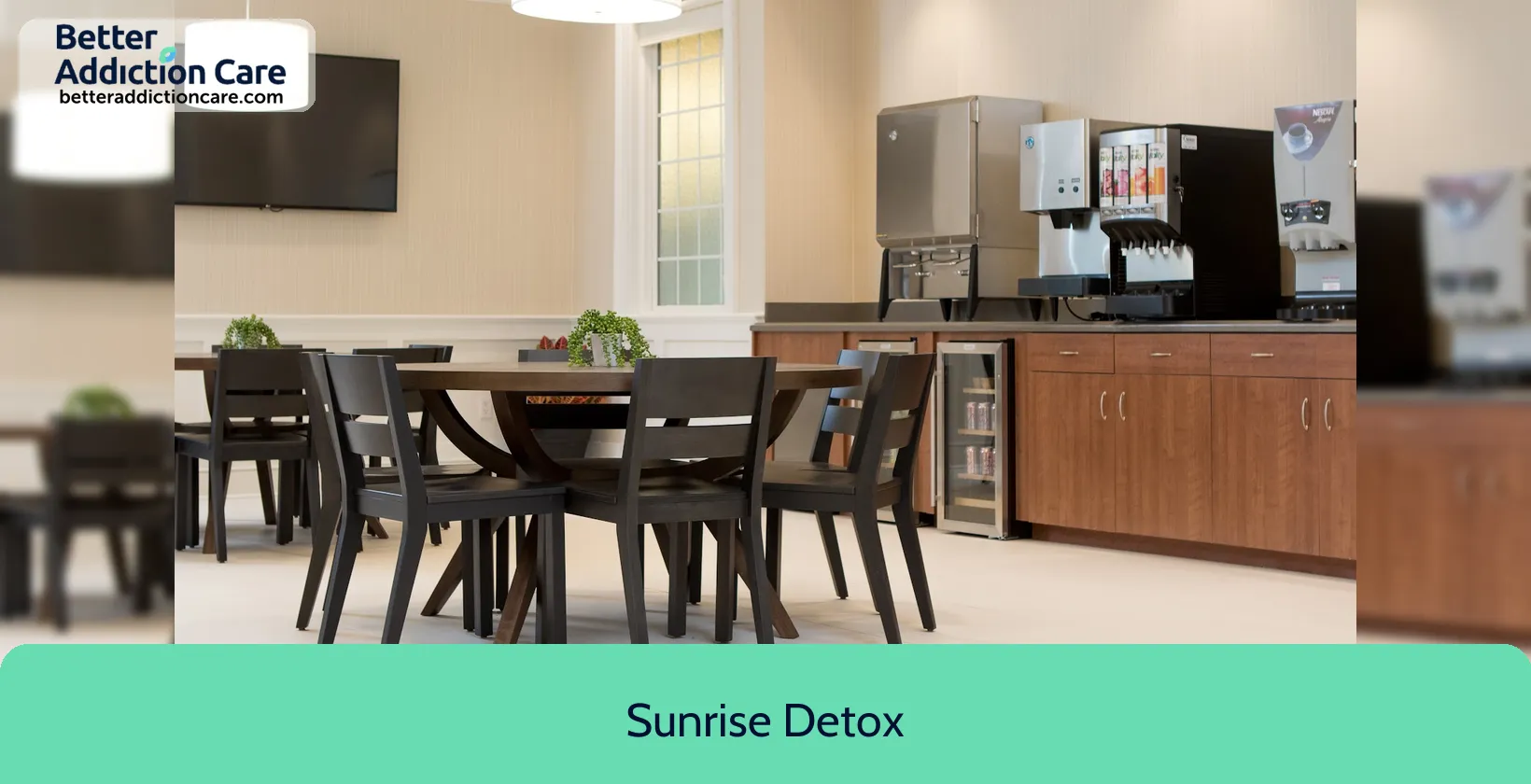Sunrise Detox
Overview
At its location in Orlando, Florida, Sunrise Detox Orlando offers comprehensive therapy to people struggling with drug use disorders. With a gender-specific approach to care, the institution provides both inpatient and detoxification services for men and women. Through a variety of organized programs intended for long-term rehabilitation, the center helps people overcome addiction with an emphasis on building a supportive environment.
Detoxification, Residential Rehab, Intensive Outpatient Programs (IOP), Partial Hospitalization Programs (PHP), and Aftercare services are among the treatment alternatives that Sunrise Detox Orlando provides. To facilitate a smooth transition after treatment, the hospital also provides halfway houses and sober living communities. Medication-assisted treatment, peer mentoring, individual and group therapy, and cognitive behavioral therapy (CBT) are important treatment techniques. Sunrise Detox Orlando is especially well-known for its tailored recovery programs that cater to the particular needs of first responders and veterans. The Joint Commission's accreditation of the hospital guarantees excellent levels of patient care and treatment safety.
Sunrise Detox at a Glance
Payment Options
- Cash or self-payment
- Private health insurance
- Sliding fee scale (fee is based on income and other factors)
- Self-pay options
Assessments
- Screening for tobacco use
- Comprehensive mental health assessment
- Comprehensive substance use assessment
- Outreach to persons in the community
- Screening for mental disorders
Age Groups
- Seniors or older adults
- Young adults
- Adults
- Seniors
Ancillary Services
- Case management service
- Integrated primary care services
- Suicide prevention services
- Early intervention for HIV
- Mental health services
Highlights About Sunrise Detox
7.49/10
With an overall rating of 7.49/10, this facility has following balanced range of services. Alcohol Rehabilitation: 8.00/10, Drug Rehab and Detox: 8.15/10, Insurance and Payments: 6.00/10, Treatment Options: 7.82/10.-
Drug Rehab and Detox 8.15
-
Alcohol Rehabilitation 8.00
-
Treatment Options 7.82
-
Insurance and Payments 6.00
Accreditations
The Joint Commission:

The Joint Commission's addiction and behavioral health accreditation signifies a facility's commitment to high-quality care. It involves rigorous evaluations and assessments of clinical practices, ensuring effective, evidence-based treatment. Accreditation showcases a dedication to continuous improvement and patient safety, instilling trust among patients, families, and healthcare professionals. It's a mark of excellence in addiction and behavioral health care.
State department of health:

Government agencies issue State Licenses, granting rehabilitation organizations permission to operate their businesses legally within specific geographic regions. The licenses needed for legal operation are typically determined by the type of rehabilitation program offered by a facility and its physical location.
Registration: 4847209622201
LegitScript:

Only programs and services that have successfully completed a rigorous application process initiated in 2018 can attain LegitScript certification. This stringent evaluation guarantees that only reputable mental health and co-occurring substance abuse treatment providers are eligible to be part of Google's network, ensuring compliance with HIPAA privacy laws.
CARF:
CARF accreditation is a prestigious recognition granted to rehabilitation and human service organizations. It signifies that an organization meets high-quality standards, having undergone a rigorous evaluation process. CARF accreditation boosts an organization's credibility and ensures top-notch care for individuals with disabilities, injuries, or healthcare needs.
Treatment At Sunrise Detox
Treatment Conditions
- Alcoholism
- Substance use treatment
Care Levels
- Hospital inpatient/24-hour hospital inpatient
- Short-term residential
- Residential detoxification
- Hospital inpatient detoxification
- Hospital inpatient treatment
Treatment Modalities
- Cognitive behavioral therapy
- Telemedicine/telehealth therapy
- Substance use disorder counseling
- Trauma-related counseling
- Smoking/vaping/tobacco cessation counseling
Ancillary Services
Languages
- English
Additional Services
- Pharmacotherapies administered during treatment
- Mentoring/peer support
- Breathalyzer or blood alcohol testing
Special Programs
- Clients with co-occurring mental and substance use disorders
- Veterans
- Active duty military
- Members of military families
- Criminal justice (other than DUI/DWI)/Forensic clients
Get Help Now
Common Questions About Sunrise Detox
Contact Information
Other Facilities in Orlando

7.07

7.13

7.97
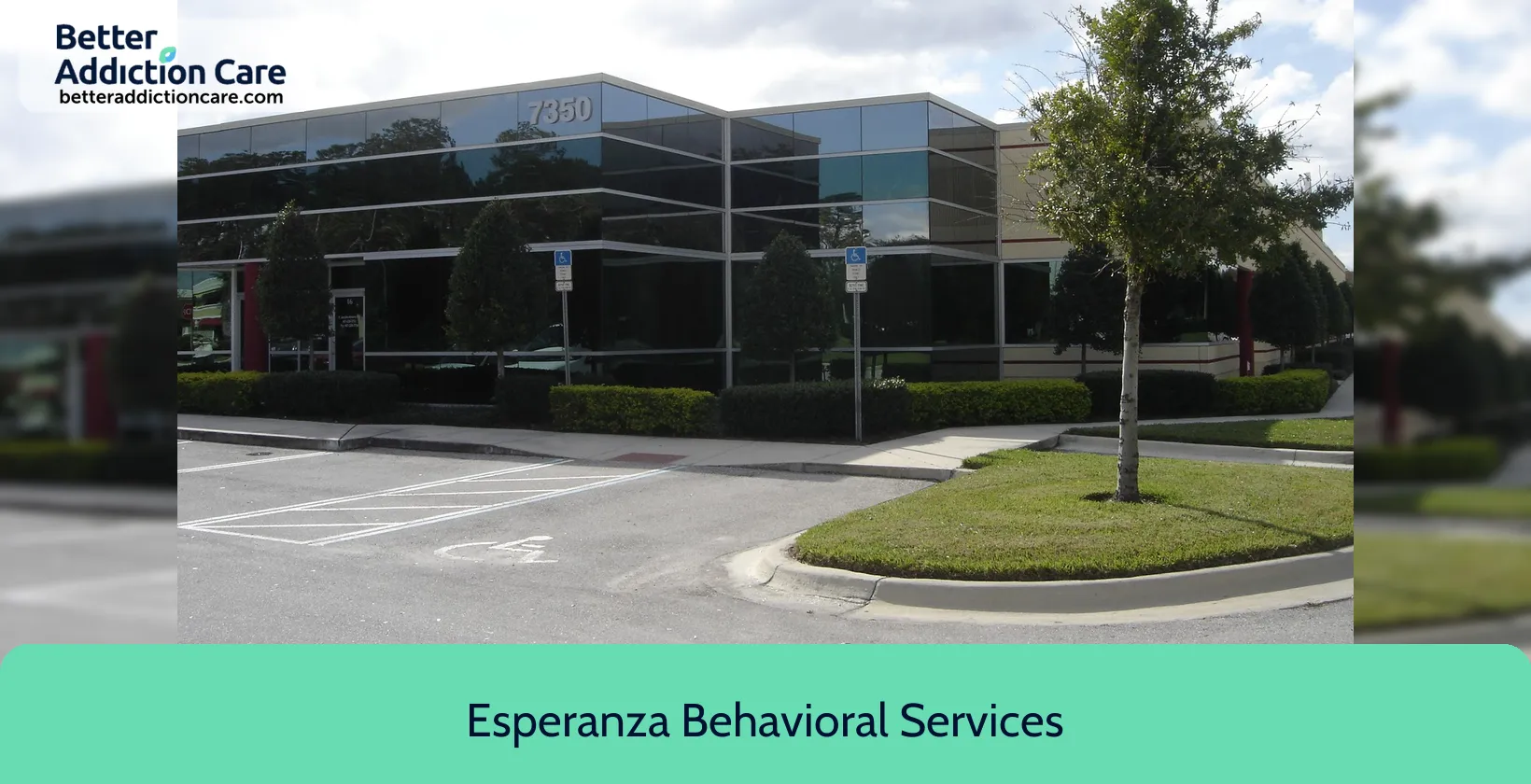
6.62
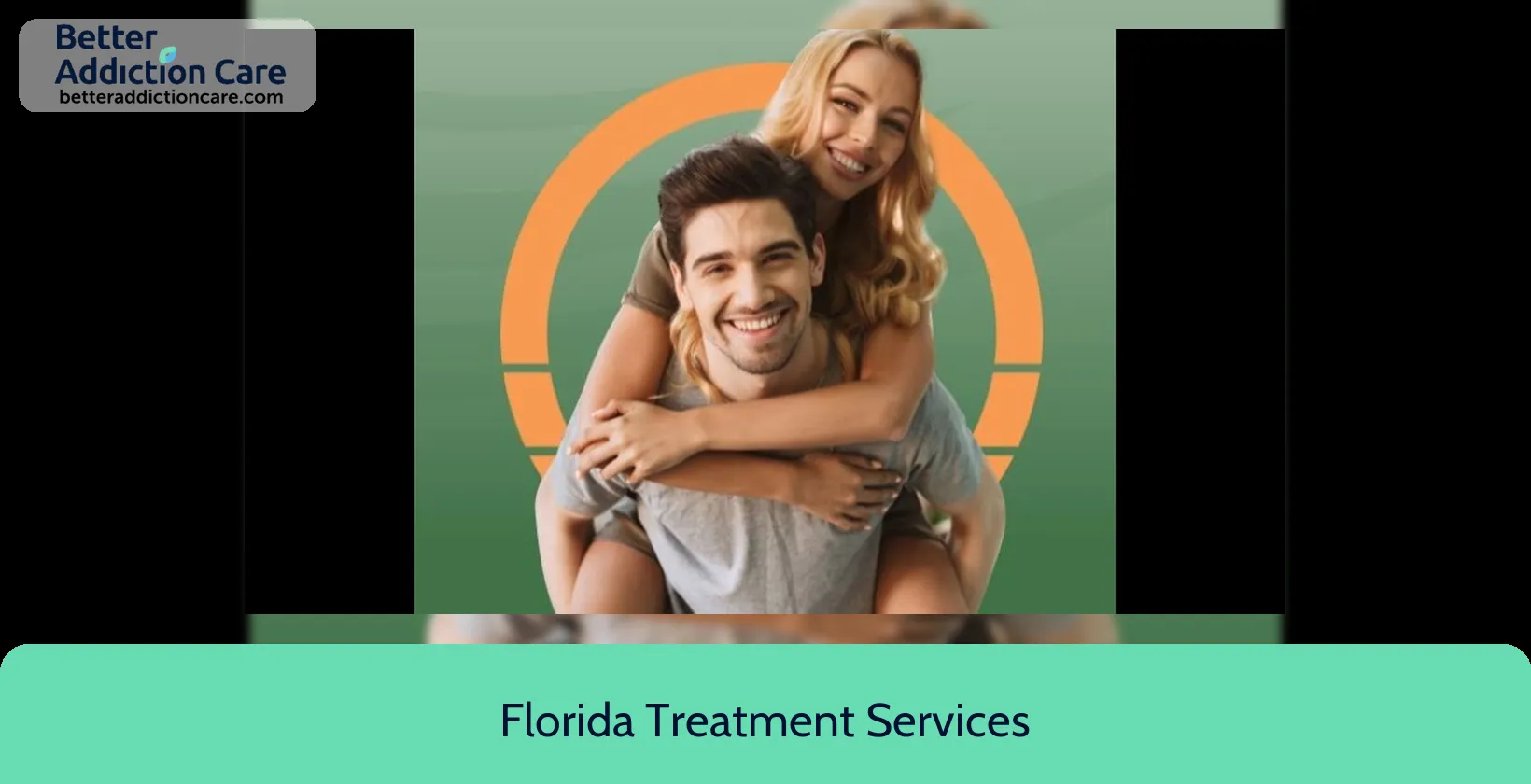
7.79

6.68
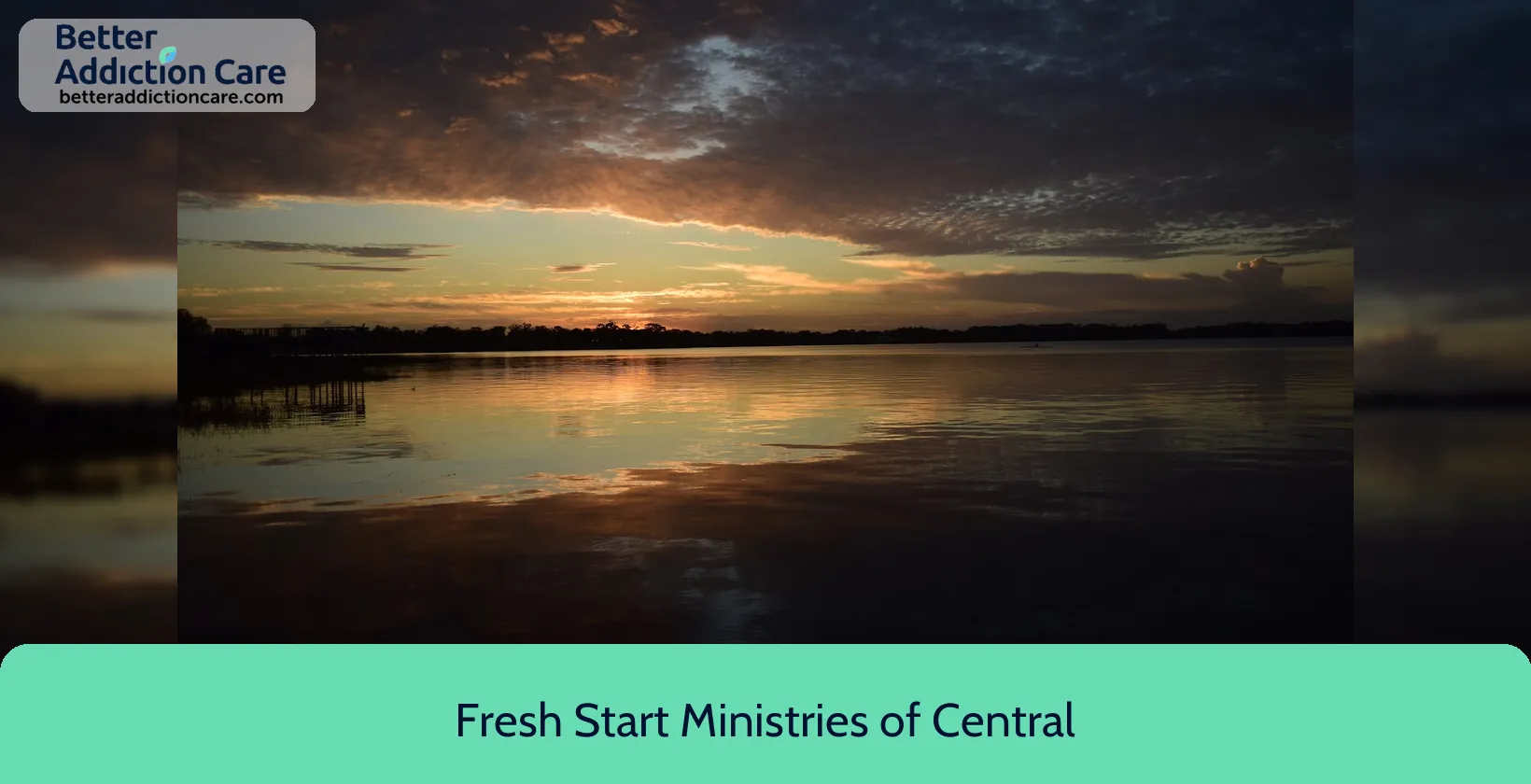
6.89
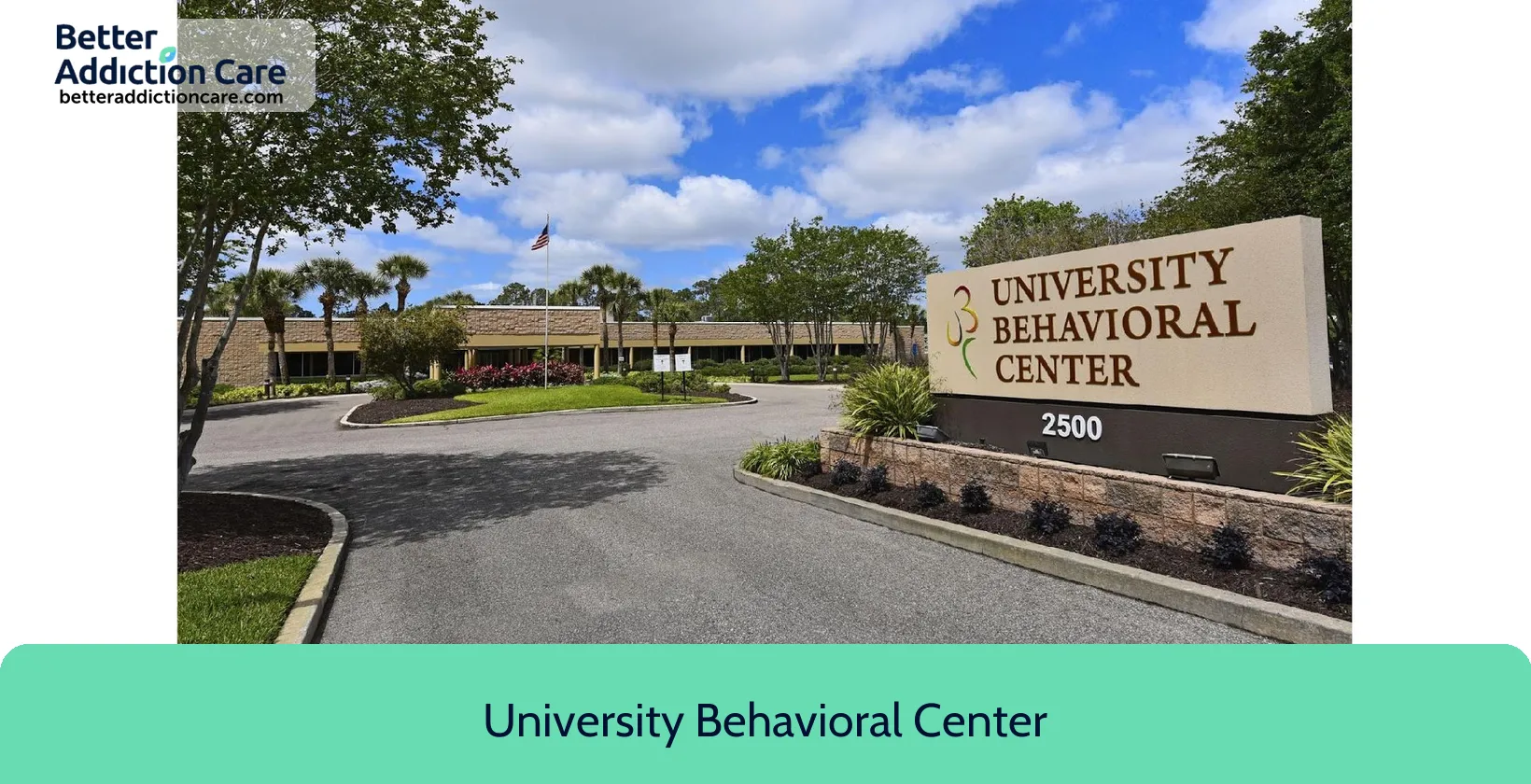
7.35
DISCLAIMER: The facility name, logo and brand are the property and registered trademarks of University Behavioral Center, and are being used for identification and informational purposes only. Use of these names, logos and brands shall not imply endorsement. BetterAddictionCare.com is not affiliated with or sponsored by University Behavioral Center.
